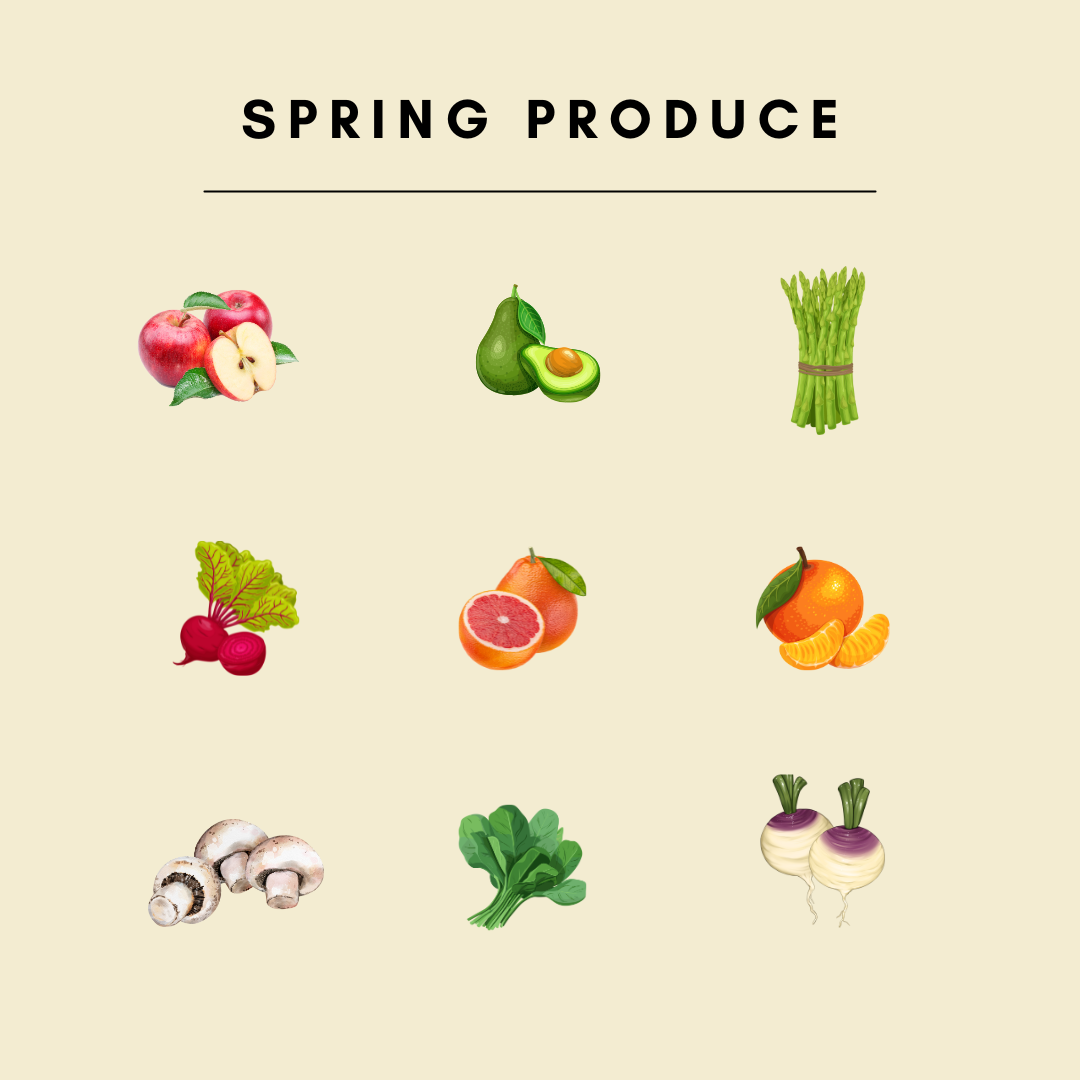Mastering the Basics of Nutrition
For a Healthier You!
When it comes to nutrition, there’s no one-size-fits-all approach. Our food choices are influenced by so much more than just what’s on our plate—our environment, past experiences, access to healthy food, and even our mindset play a huge role. The goal in this month’s newsletter isn’t to turn you into a nutritionist but to help you assess where you stand, understand the fundamentals, and empower you to make informed choices that align with your goals. As always, don’t forget to scroll all the way down for upcoming events & workout opportunities!
The Foundation: Mindful Eating & Food as Fuel
Nutrition isn’t about labeling foods as “good” or “bad.” Instead, it’s about:
Being intentional with consumption – try focusing on eating slowly, reducing distractions during meals, and learning to recognize your hunger cues.
Seeing food as neutral energy – the nutrients we consume fuel our bodies, and different macronutrients (protein, fats, and carbohydrates) play specific roles in our well-being. No food is inherently good or bad, and generally, food is necessary for us to survive & thrive. Reframing to see food as fuel helps us build a healthier relationship with the things we consume.
Focusing on whole, nutrient-dense foods – these are the diet staples that provide vitamins, minerals, fiber, and antioxidants that best support overall health.
Understanding Macros & Hydration
Macros are big families of nutrients that are central to the metabolic processes. The main categories include: protein, carbohydrates, fats, and yes, alcohol.
Protein: Essential for muscle repair and overall health. The general guidelines suggest aiming for 0.8-1g per kg of body weight, or 1.5-2g per kg if you’re building muscle.
Hydration: It is recommended to drink 34-68oz of water daily. Your urine color is a great hydration indicator! Light yellow to clear = hydrated, darker shades = drink up! If you struggle to drink enough water day-to-day, here are some pro tips to stay hydrated:
Add lemon, cucumber, or mint to your water.
Set hourly reminders to drink.
Keep a large water bottle with you at all times.
For help calculating the macros for your personal goals, you can use this calculator.
Alcohol & Caffeine: The Good, the Bad, and the Reality
Alcohol: While it’s often part of social settings, alcohol offers little nutritional value and can negatively affect recovery, sleep, and body composition. We all metabolize alcohol differently based on a variety of factors (genetics, age, lean mass, liver health, etc.) but general effects of drinking include: inhibition of movement, dehydration, impaired recovery & sleep, and increased body fat/difficulty losing body fat. It is not necessary to become sober to be healthy but it is helpful to become aware of how drinking impacts you, learn what works best for your body, and ask for help if you need it.
Caffeine: a double-edged sword. It can improve alertness and reduce perceived exertion during workouts but may also cause anxiety, jitters, and disrupted sleep. The key is learning your tolerance and monitoring your intake.
Building Balanced Plates & Sustainable Habits
A well-rounded meal includes: Proteins for muscle maintenance, Carbs for energy, Healthy fats for brain and hormone function, Hydration to keep your body running smoothly.
Tracking calories isn’t always necessary, but being mindful of food quality and portion sizes can help you make better choices.
Things to keep in mind as you build your plates:
Whole foods vs. processed foods: Whole foods are your most nutrient dense options. They are rich in essential nutrients, contain natural fiber to aid digestion, provide antioxidants to reduce the risk of chronic disease, and support a healthy gut microbiome for a strong immune system and mental wellbeing. Processed foods undergo deliberate alterations from their natural state for various reasons, including preservation, flavor enhancement, or convenience. They can be associated with chronic diseases such as diabetes, heart disease & obesity. You do not need to eliminate processed foods from your diet (it would be almost impossible in today’s world) but it is helpful to prioritize whole foods.
Calories in minus calories out: Weight loss is often simplified as "calories in versus calories out," but the reality is more complex. While energy balance does play a role—meaning excess calories are stored and deficits lead to weight loss—how each person processes energy varies based on factors like hormone balance, metabolic rate, and gut health. Biological sex matters too, as women naturally require higher levels of body fat for reproductive health.
Pre workout vs. post workout nutrition: For optimal workout performance, aim to have a small, carb-focused snack within an hour before exercising to provide quick energy. If needed, refuel with similar carb-rich foods during longer or more intense workouts. After training, replenish your body with protein, carbohydrates, and water to support muscle recovery and replenish glycogen stores. Prioritizing protein and carbs within 30-60 minutes post-workout is especially beneficial for muscle growth and recovery.
Here are a few helpful graphics as you think about what a healthy plate might look like in your home. If you’d like more guidance on how to build a balanced plate, myplate.gov is a free public health resource with lots of valuable nutrition information.
What Matters Most?
Nail the basics. Prioritize whole, nutrient-dense foods, hydration, and portion control.
Check in with a certified professional if you have unique health concerns.
Sustainable habits win. Nutrition is about what you can maintain long-term, not short-term fixes.
Let’s build a better relationship with food—one mindful bite at a time!
Got any questions? Interested in learning more about fitness-specific nutrition tips? Reply to this email—I’d love to hear from you!
Stay strong & fueled!




